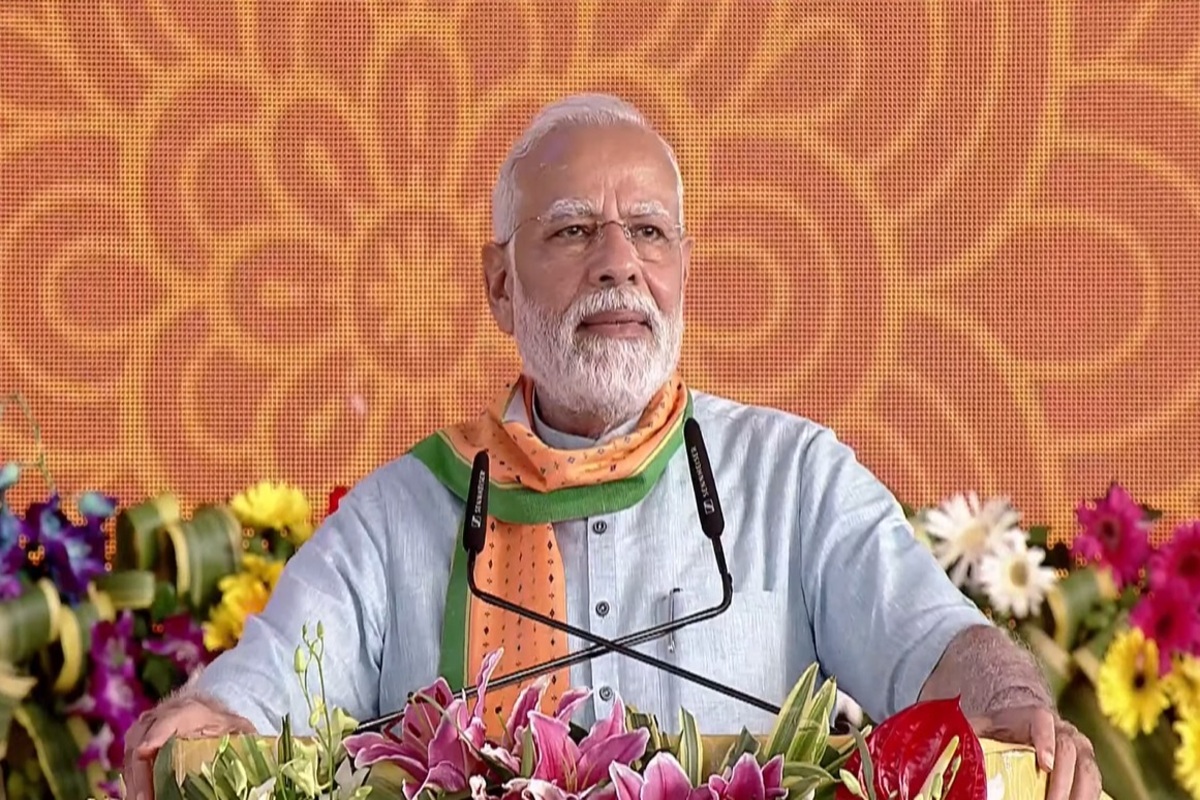On Saturday, PM Narendra Modi expressed his gratitude to the African nation of Namibia after the release of cheetahs into Madhya Pradesh’s Kuno National Park. He said it would have not been possible without their help.
PM Modi, while addressing and congratulating the Indian citizens, said that cheetahs have come back to the country after decades and on this historic day, he wants to congratulate all Indians and thanked the government of Namibia for the gift. This could not have been possible without their help, he said.
Eight cheetahs have been brought under an MoU signed earlier this year with the Namibian government in order to revive the already extinct cat species.
“Decades ago, the age-old link of biodiversity was broken and had become extinct, today we have a chance to reconnect it. Along with these cheetahs, the nature-loving consciousness of India has also awakened with full force,” said PM Modi.
“It is unfortunate that we declared cheetahs extinct from the country in 1952, but for decades no meaningful effort was made to rehabilitate them. Today, as we celebrate Azadi ka Amrit Mahotsav, the government has started rehabilitating cheetahs with new energy,” he added.
Moreover, cheetahs will help in the restoration of open forest and grassland ecosystems in India and will help conserve biodiversity and enhance the ecosystem services like water security, carbon sequestration, and soil moisture conservation.
“Nature and environment, animals and birds, for India are not just about sustainability and security. For us, it is also the basis of our sensibility and spirituality. Today, India of the 21st century is giving a message to the world that economy and ecology are not conflicting fields,” said PM Modi.
While advising the tourists and people who were planning to arrange a visit to Kuno National park in order to watch newly-relocated cheetahs, PM Modi asked them to wait for a few months so that these new members of the national park may have their own time to settle down with the unfamiliar environment.
“People will have to show patience and wait for a few months to see these cheetahs in Kuno National Park. These cheetahs have come as guests, unaware of this area. For them to be able to make Kuno National Park their home, we’ll have to give these cheetahs a few months’ time. Following international guidelines, India is trying its best to settle these cheetahs. We must not let our efforts fail,” he requested the nation.
PM Modi released three cheetahs from enclosure number one and after that about 70 meters away, from the second enclosure he released another cheetah.
The cheetah was declared extinct from India in 1952 but today 8 cheetahs (5 females and 3 males) were brought from the African nation of Namibia as part of ‘Project Cheetah’ and the government’s efforts to revitalize and diversify the country’s wildlife and habitat.
The eight cheetahs were brought in a cargo aircraft in Gwalior as part of an intercontinental cheetah translocation project. Later, the Indian Air Force choppers carried the cheetahs to Kuno National Park from Gwalior Air Force Station.
All the cheetahs have been tagged with radio collars to be monitored through satellite. Apart from this, there is a dedicated monitoring team behind each cheetah who will be monitoring their location for 24 hours.
(With Inputs from ANI)











